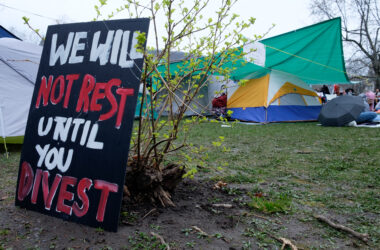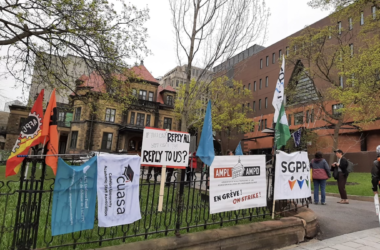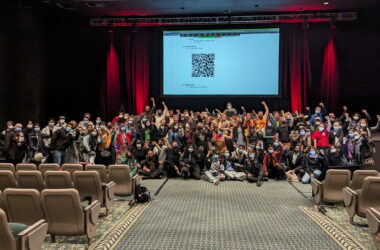With the United States’ foreign policy, engagement in Iraq and Afghanistan and war on terrorism making international headlines daily, Canada’s role in the war on terror has received less scrutiny. To fill the void as well as to combat the negative views of Islam, the Muslim Students Association organized a conference last Wednesday night entitled “Canada and the War on Terror.”
Professor Yakov M. Rabkin of Université de Montréal and Professor Rachad Antonius of Université du Québec à Montréal spoke of the “Islamo-facism” message pushed by the media and government. They were particularly critical of what they perceived as a changing discourse in politics.
“There is an impact on the discourse of the War on Terror on our everyday life,” said Rabkin, who recently published A Threat from Within: A Century of Jewish Opposition to Zionism.
“Today you can say stuff about Islam and Muslims you could not dream about saying before.”
The war, which Rabkin described as a war on values,” is being fought along ethnic and religious lines, with no effort made to understand rational arguments for Islamic anger.
“There is no point in arguing with those who do not accept reason. That’s the message the Pope gave. That’s the message you hear from our government,” Rabkin said.
Antonius admitted that although there was a small security risk to Canada, it did not legitimize the wars currently being fought. The real cause of the Afghanistan and the Iraq war, he said, was “the oil game.”
Like Rabkin, Antonius warned Canadians against the changing political dialogue.
“You see anger as hatred, you explain it with religion and you legitimize the discourse,” Antonius said.
McGill graduate and event organizer Reem Eid said the event’s foremost purpose was to be informative, but hoped that it might inspire some to take action.
“There are a lot of human rights issues being violated at the moment that we need to be aware of,” she said. “We have a lot of people here who are against the war and I don’t see why our government is making decisions without seeing what the public thinks.”
She said the media has influenced the way Canadians view Muslims and believes that Canada’s image as well as that of McGill as a tolerant and multicultural society might be in danger.
“[McGill is] welcoming a lot of Muslim students from around the world,” Eid said. “At the same time, it’s denying them a prayer space. That’s one way of denying people here their rights in a country that’s considered multiethnic.”
Fellow organizer and McGill professor Ehab Lotayef agreed.
“There is no time like now to try and get people aware of how the word terrorism is being used as a tool of oppression,” Lotayef said. “Things have changed over the past five years-have changed for the worse.”
Student reactions to the event were mixed.
“I felt like this topic really showed me more about different views on the War on Terror,” said Lawrence Huang, U2 Physiology. He admitted that most McGill students seem apathetic to international events, but added, “It’s given me more awareness. When confronted with somebody who has different opinions than I do, I can say something now.”
Other students, who chose to remain anonymous, were disappointed that the lectures were one-sided, and pointed out that the event was advertised as Canada’s place in the War on Terror, and not as a criticism of current policy.








